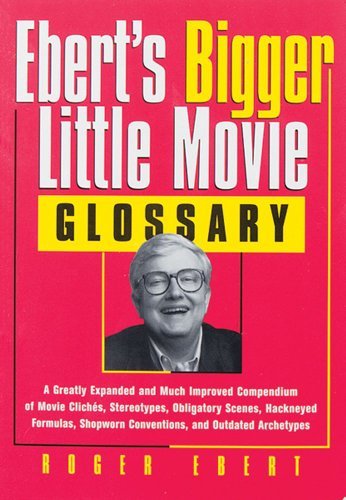What do you think?
Rate this book


Unknown Binding
CLIDVIC (Climb from Despair to Victory). Formula for Rocky and all the Rocky rip-offs. Breaks plot into three parts: (1) defeat and despair; (2) rigorous training, usually shown in the form of would-be MTV videos; (3) victory, preferably ending in free-frame of triumphant video. (p. 41)You can read it, and see whatcha think.
Kidding Battery. In horror films, when the hero/heroine jumps in a car while being pursued by the killer, the car never starts at the first crank. The following generic montage is used: Close-up shot of hero/heroine's face sweating. Face goes out of focus as background focuses to reveal killer approaching car. Close-up of ignition failing again to start engine. Repeat sequence as many times as necessary to match generic crescendo music. Finally, battery gives enough juice to start engine just a second before killer gets the would-be victim. Obviously, the battery was just kidding. (p. 104)
Radio Pictures. A character's dialogue describes what we can clearly see happening on the screen. Critic Rich Elias tags an all-time classic when he observes that Jack, in Titanic, says, "Let's get out of here! This place is flooded!" (p. 163).